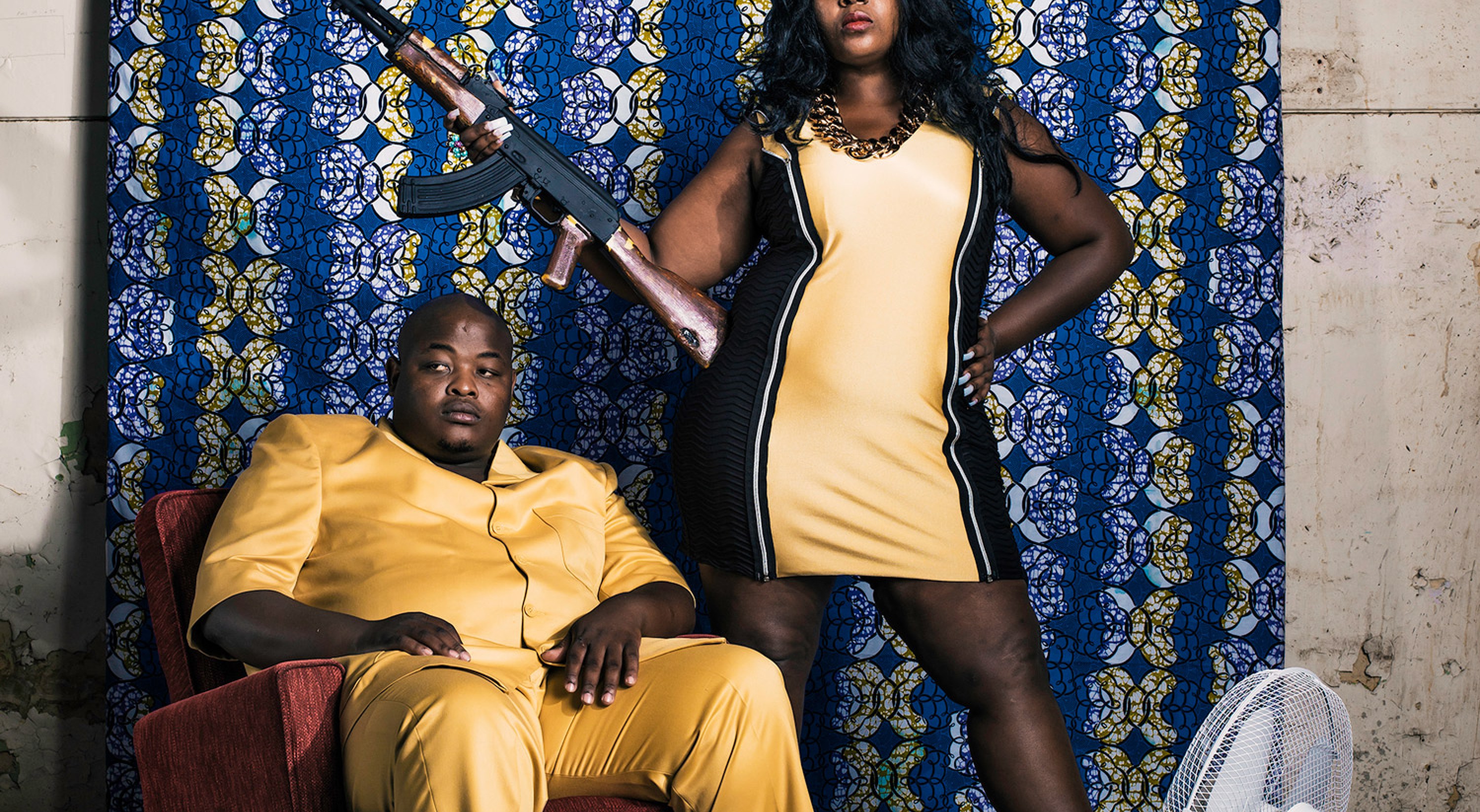Brett Bailey / Third World Bunfight
Macbeth
novembernov 18 – 22
novembernov 25 – 26
Devised and directed by, Brett Bailey
Music, Fabrizio Cassol, based on Macbeth by Verdi
Conductor, Premil Petrovic
Lighting designer, Felice Ross
Manager and producer, Barbara Mathers
With Owen Metsileng (Macbeth), Nobulumko Mngxekeza (Lady Macbeth) Ebenezer Sawuli (Banquo), and opera's singers
Sandile Kamle, Jacqueline Manciya, Monde Masimini, Siphesihle Mdena, Bulelani Madondile, Philisa Sibeko, Thomakazi Holland
With the No Borders Orchestra
A coproduction with Kunstenfestivaldesarts/KVS (Bruxelles) ; Wiener Festwochen (Vienna) ; Theaterformen Festival (Brunswick) ; The Barbican (London) ; La Ferme du Buisson, scène nationale de Marne-la-Vallée ; Nouveau théâtre de Montreuil ; Festival d’Automne à Paris // In collaboration with Nouveau théâtre de Montreuil ; La Ferme du Buisson, scène nationale de Marne-la-Vallée ; Festival d’Automne à Paris // With support from the Culture Programme of the European Union, and Artscape // With support from ONDA // With support from the HenPhil Pillsbury Fund The Minneapolis Foundation & King’s Fountain
In partnership with France Inter
Brett Bailey, the South African playwright, director and installation artist has given a new take on Verdi’s opera, Macbeth, inspired by the Shakespearean tragedy, by setting it in the context of the current conflict raging in the Democratic Republic of Congo. Macbeth, an army general, murders King Duncan under the influence of his wife, Lady Macbeth, and a group of evil witches. The couple progressively spirals downwards into ambition, destruction and remorse, plunging the kingdom into chaos. In the explosive and resolutely contemporary version staged by Brett Bailey and his company Third World Bunfight, a group of refugees finds itself in the city of Goma, and discovers a trunk containing the costumes and accessories left behind by a troop that had come to Congo during the colonial era to perform Verdi’s opera. So they decide to stage this work which has so many echoes with their own situation - a country torn apart by civil war, with militia groups imposing a reign of terror, power-mad rulers and a total disregard for human life.
This plot framework sets up a series of narrative and cultural filters, spanning the different places and eras, which bring to light the immensely unsettling impact of the Macbeth story, in addition to its relevance to the present day. The piece, combines living portraits and the mixing together of various elements taken from popular african culture, brings onto the stage all the violence of civil war. However, the piece strays from the Shakespearean ending in which peace and order is restored... particularly in a world in which a new Macbeth is always ready to spring up.
In the same place

